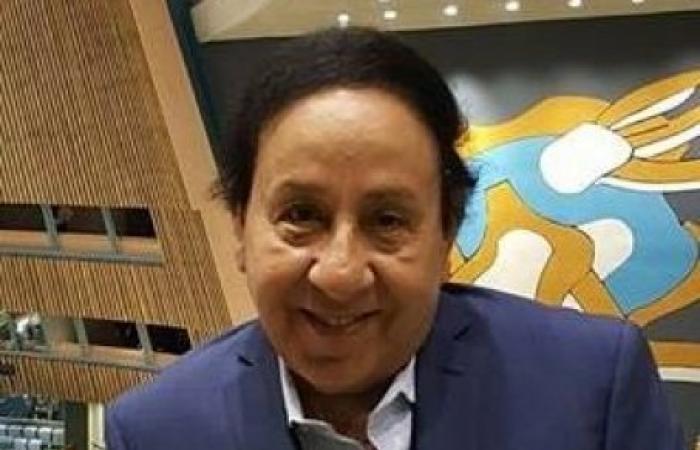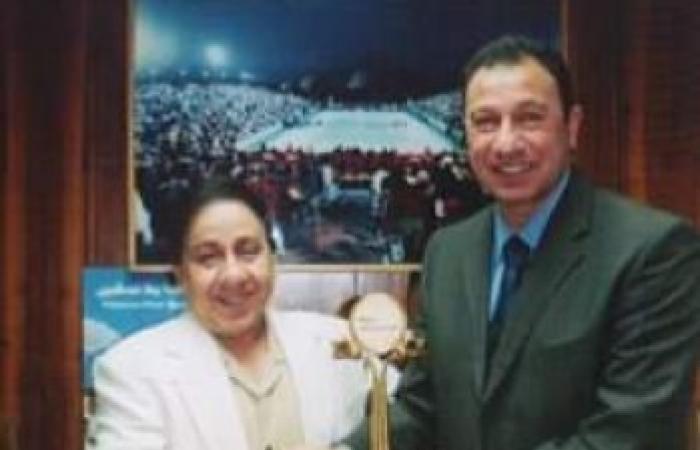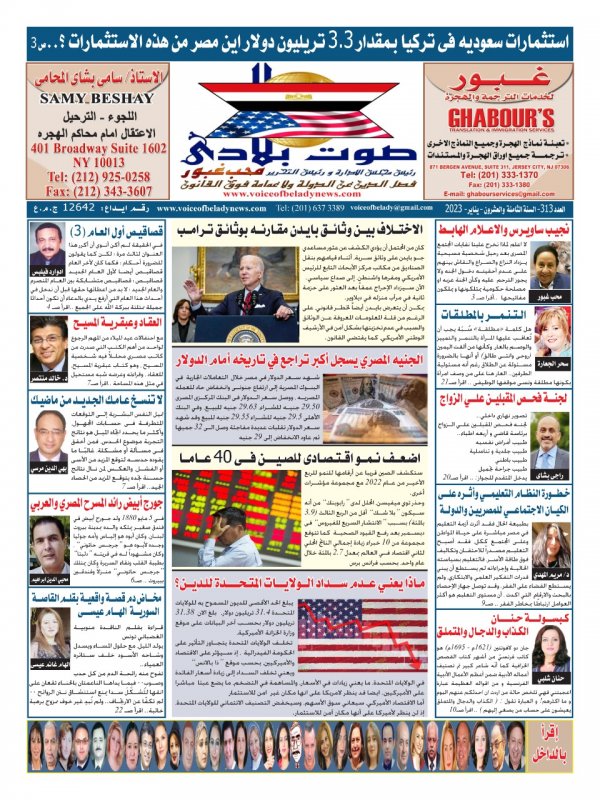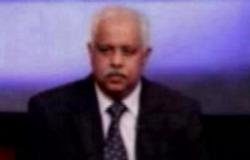I wrote
Huwaida Awad Ahmed
There is almost no other country, with the weight and importance of the United States of America, that it devotes most of its diplomacy to serving its economic interests, improving the competitive position of its exports, and increasing the share of its various industries in global markets, especially since the beginning of the nineties, which witnessed the end of the Cold War and the division of the world between two war camps and two economic philosophies. It has been the performance of American diplomacy since the end of World War II.
Although economic interests have not been absent from the list of desired goals to be achieved, nor have they disappeared from the agenda of state diplomats.
However, political arrogance and national pride always preceded the facades of the activities of embassies and envoys and formed a veil, but at the same time they were able to obscure the targeted economic goals and camouflage commercial interests with extensive conversations about sovereignty and topics that attract hot lights, interests, newspaper headlines and introductions. news.
That is because the collapse of the Soviet Union and the bankruptcy of the theory of comprehensive central economic planning,
They opened the door wide for the advancement of the economy over politics and hastened the end of the time of dogmatic ideologies in favor of the time of commercial interests, technology, the information and communication network, and globalization, which is no longer possible with it to continue that meaningless exaltation on the part of politicians and their abstinence from wading openly in the waters of money and business. and trade.
Perhaps the most important variable behind all this current transparency in political relations between countries and the most influential element in the occurrence of such a coup in the priorities of politicians and diplomats,
It is that coup in the concept of power itself, especially when it became clear that the massive Soviet war machine had been defeated in a battle in which not a single bullet was fired, and that all that terrible destructive force was not able to secure a decent standard of living for tens of millions of Russians who believed that they were living in a state. My bony hostility to the United States.
Thus, what we are witnessing now of unprecedented frankness, which diplomats and heads of state and government leave during multilateral bilateral meetings when talking about economic interests, currency exchange rates and markets, in fact expresses another development in the content of the diplomatic expression itself, after a long period of The fluctuations of this concept between war and peace.
Especially as we are witnessing a qualitative management of embassies, envoys, and consuls who have taken to presenting the economic interests of their country over those usual political considerations, and pleading to achieve these interests through all available means, including military force if necessary, fleet diplomacy, proxy wars and limited regional conflicts, in contrast to what In previous eras, economic interests were marginalized and even sacrificed in the context of the race that raged between East and West, where ideological considerations and security and political strategies were at the forefront of the concerns of the two great competitors at the time.
Perhaps a look at the growing importance of an organization
Global trade, which will serve as a reference for a dominant country and regulator of trade exchange relations between countries, shows to the greatest extent possible that the establishment of this organization in the post-Cold War period expresses the spirit of a new era in which customs barriers are collapsing, distances are fading, time is shortened, and the ability to trade is growing. Communication and other variables that would overturn prevailing concepts, inherited values, historical constants, visions, philosophies and relations between states, nations and groups.
Such a result is reinforced more and more if we recall the growing importance of the Davos Club, in which thousands of participants, businessmen, intellectuals and diplomats meet annually, in the form of a global government to manage the world economy, plan its components and direct its mechanisms in a scene that looks like this annual meeting. As another expression of the spirit of a new age now.
In it, considerations of money, trade, and business dominate all those considerations that shaped relations between countries, and produced a system of values and cultures equal to their infrastructure.
Accordingly, it is possible to monitor the new development in the concept and content of international relations and capture the most important components of the current era as the era that embodies the concept of diplomacy of commercial interests, as economic, financial and commercial interests began to take precedence over various other considerations on the current foreign policy scene, especially after the ideological conflict between the two camps was resolved. Who dominated international life for several decades. They dominated the international stage.
And the concept of power begins with the states, where the economic significance and vitality of commercial competition replaced the classical concept.
Which measured the strength of a country by the number of aircraft
Cannons, armies, and military equipment.
Therefore, it is no longer reprehensible for a superpower to openly present its interests and to place such interests at the forefront of its foreign policy concerns.
And to drop from its calculations moral principles and values, democratic slogans and human rights,
If it seems to her that this harms her direct interests and weakens her competitive position in a world whose concepts have completely changed.
Economic affairs became the focus of the state's activities and the goal of all its various efforts, including its diplomatic efforts and the activities of its representatives and attachés in the various embassies.
Perhaps the United States, a country with strategic and economic interests that include various parts of the world, seems to be at the forefront of the countries of the world in pursuing diplomacy and experiential interests, as its foreign policy has taken
Since the beginning of the current decade, it has provided a tangible, practical model not only for the content of commercial diplomacy.
Rather, it is also due to the significance and depth of the changes that occurred in the concept of diplomacy itself during this era that began with the end of the Cold War.
Since the administration of President Bill Clinton, she has not hesitated to say publicly that the focus of her foreign policy is her economic interests, that American economic prosperity is at the forefront of the concerns of this administration, and that all her diplomatic efforts or the financial and technical assistance she provides, and even what she legislates It has wars that are going on until now, or what it is waving of war power, all of which are harnessed to enhance America’s position and expand its economic interests, if we do not say adjusting its trade balance with this or that country, even if that conflicts with its human rights slogans.
Until now, commercial interests control all economic and diplomatic relations, and all the names of force, appeasement, and planning in all its forms fall under it.




 رئيس التحرير يكتب : من التراب وإلى التراب يعود .. تحويل جثث الموتى إلى سماد عضوى
رئيس التحرير يكتب : من التراب وإلى التراب يعود .. تحويل جثث الموتى إلى سماد عضوى
 رئيس التحرير يكتب : لماذا تصر الحكومة على استمرار شريف أبو النجا رئيسا لمستشفى 57357 رغم الشواهد العديدة على فساده
رئيس التحرير يكتب : لماذا تصر الحكومة على استمرار شريف أبو النجا رئيسا لمستشفى 57357 رغم الشواهد العديدة على فساده اقرأ في العدد الجديد ( عدد يناير ٢٠٢٣ ) من جريدة صوت بلادي
اقرأ في العدد الجديد ( عدد يناير ٢٠٢٣ ) من جريدة صوت بلادي









